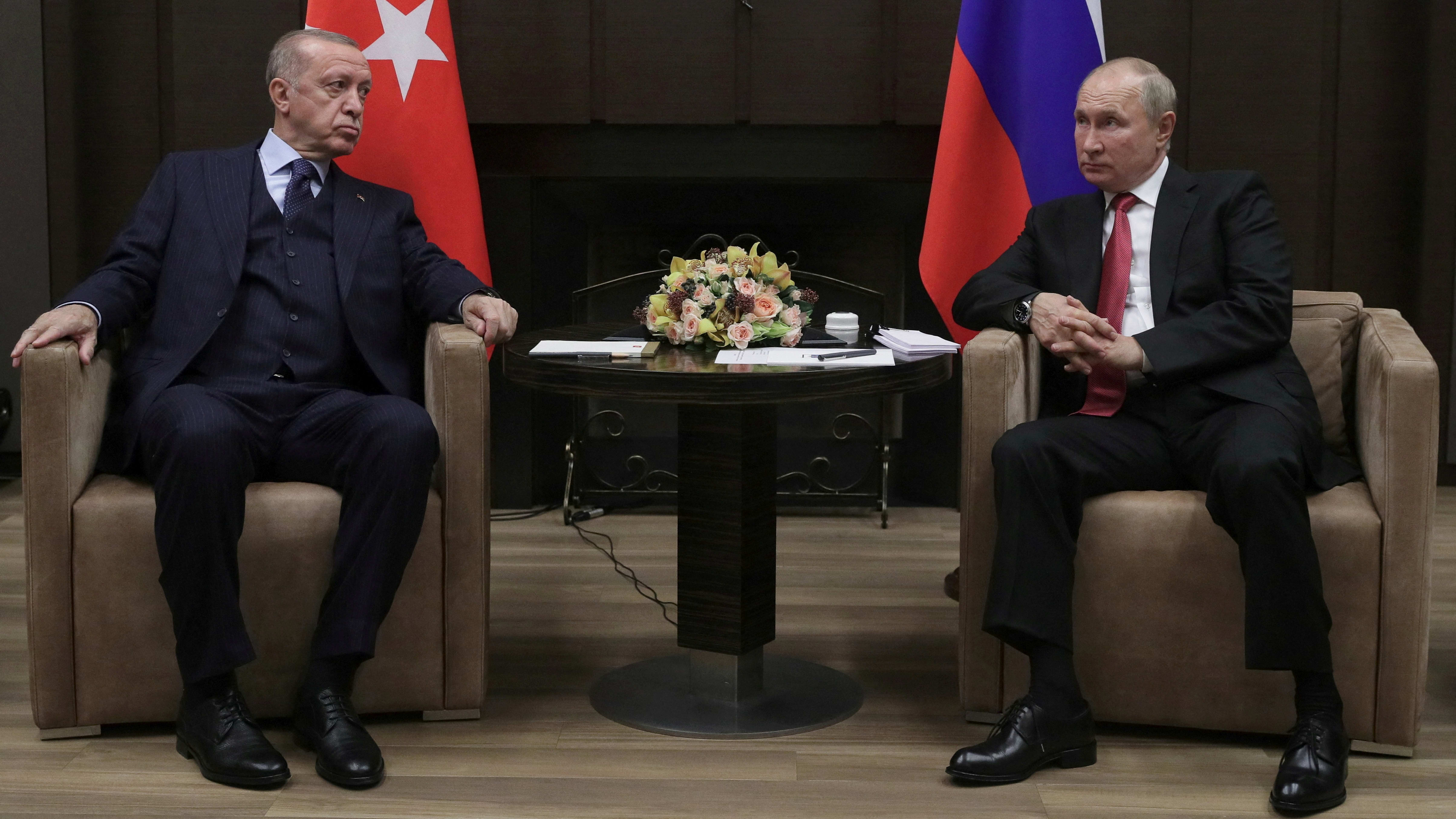Putin shared with Turkey's president his demands for Ukraine


A free daily email with the biggest news stories of the day – and the best features from TheWeek.com
You are now subscribed
Your newsletter sign-up was successful
Russian President Vladimir Putin called Turkish President Recep Tayyip Erdogan on Thursday to share his demands for Ukraine, and a close adviser to Erdogan said he believes Ukrainian President Volodymyr Zelensky will be open to some of them.
Erdogan has been in contact with Russian and Ukrainian officials throughout the invasion of Ukraine. Ibrahim Kalin, an adviser to Erdogan and his spokesman, listened in on the call with Putin, and spoke with BBC News world affairs editor John Simpson about what they discussed.
Kalin said Putin sounded clear and concise during the conversation, and had two categories of demands. Ukraine could meet the first four rather easily, Kalin said. Ukraine would have to stay neutral and not apply to NATO, Kalin stated, and would have to undergo a disarmament process and protect the Russian language in the country. Ukraine would also have to agree to go through "de-Nazification."
The Week
Escape your echo chamber. Get the facts behind the news, plus analysis from multiple perspectives.

Sign up for The Week's Free Newsletters
From our morning news briefing to a weekly Good News Newsletter, get the best of The Week delivered directly to your inbox.
From our morning news briefing to a weekly Good News Newsletter, get the best of The Week delivered directly to your inbox.
Zelensky is Jewish and had several relatives die in the Holocaust. Asking for the government to go through "de-Nazification" is "deeply offensive" to Zelensky, Simpson wrote, "but the Turkish side believes it will be easy enough for Mr. Zelensky to accept. Perhaps it will be enough for Ukraine to condemn all forms of neo-Nazism and promise to clamp down on them."
Kalin was much more vague when describing the more contentious demands, only saying they involved separatist areas of eastern Ukraine and Crimea. The assumption, Simpson wrote, is that Putin will say Ukraine must give up the territory held by separatists and formally accept that Crimea, which was illegally annexed in 2014, is officially part of Russia.
Putin told Erdogan that when discussing these demands, he will want to hold an in-person meeting with Zelensky, Kalin said. The Ukrainian president has already stated he is ready and waiting to have a face-to-face discussion with Putin.
A free daily email with the biggest news stories of the day – and the best features from TheWeek.com
Catherine Garcia has worked as a senior writer at The Week since 2014. Her writing and reporting have appeared in Entertainment Weekly, The New York Times, Wirecutter, NBC News and "The Book of Jezebel," among others. She's a graduate of the University of Redlands and the Columbia University Graduate School of Journalism.
-
 The 8 best TV shows of the 1960s
The 8 best TV shows of the 1960sThe standout shows of this decade take viewers from outer space to the Wild West
-
 Microdramas are booming
Microdramas are boomingUnder the radar Scroll to watch a whole movie
-
 The Olympic timekeepers keeping the Games on track
The Olympic timekeepers keeping the Games on trackUnder the Radar Swiss watchmaking giant Omega has been at the finish line of every Olympic Games for nearly 100 years
-
 What is ‘Arctic Sentry’ and will it deter Russia and China?
What is ‘Arctic Sentry’ and will it deter Russia and China?Today’s Big Question Nato considers joint operation and intelligence sharing in Arctic region, in face of Trump’s threats to seize Greenland for ‘protection’
-
 New START: the final US-Russia nuclear treaty about to expire
New START: the final US-Russia nuclear treaty about to expireThe Explainer The last agreement between Washington and Moscow expires within weeks
-
 What would a UK deployment to Ukraine look like?
What would a UK deployment to Ukraine look like?Today's Big Question Security agreement commits British and French forces in event of ceasefire
-
 Would Europe defend Greenland from US aggression?
Would Europe defend Greenland from US aggression?Today’s Big Question ‘Mildness’ of EU pushback against Trump provocation ‘illustrates the bind Europe finds itself in’
-
 Did Trump just end the US-Europe alliance?
Did Trump just end the US-Europe alliance?Today's Big Question New US national security policy drops ‘grenade’ on Europe and should serve as ‘the mother of all wake-up calls’
-
 Is conscription the answer to Europe’s security woes?
Is conscription the answer to Europe’s security woes?Today's Big Question How best to boost troop numbers to deal with Russian threat is ‘prompting fierce and soul-searching debates’
-
 Trump peace deal: an offer Zelenskyy can’t refuse?
Trump peace deal: an offer Zelenskyy can’t refuse?Today’s Big Question ‘Unpalatable’ US plan may strengthen embattled Ukrainian president at home
-
 Vladimir Putin’s ‘nuclear tsunami’ missile
Vladimir Putin’s ‘nuclear tsunami’ missileThe Explainer Russian president has boasted that there is no way to intercept the new weapon
